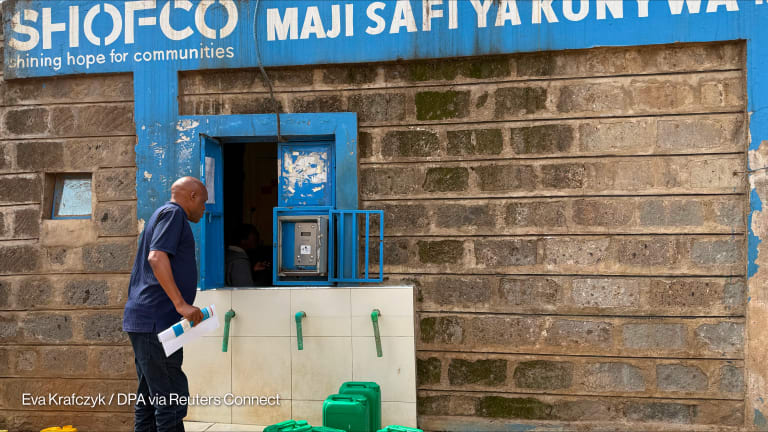
Finding local solutions to global development challenges is among the trending topics in international development. Donor agencies emphasize this to varying degrees, but all recognize that local ownership of development is a key ingredient for success.
Some international nongovernmental organizations — themselves the implementing partners of choice for development agencies for the past 50 years — are shifting their business models to align with this trend. But building and sustaining local entities to favor local solutions isn’t that easy.
This begs the question: Can international NGOs be a part of the “local solution”? Here are four ideas that I think will help us get to yes.
1. Incentivize national staff.
Procurement rules often dictate that national employees of international NGOs, or those working in their country of origin, be paid at lower rates than expatriates — a lot lower, sometimes. This pay structure disincentivizes national staff from stepping into leadership roles at the country level.
At PSI, international employees are loath to step away from job benefits and professional development opportunities to lead a locally registered network member in their home country. Who can blame them? That transition can mean a big pay cut.
National talent should not mean cheaper talent.
2. Instead of balkanizing, use international networks to support local organizations.
The global private sector is moving toward larger, better-networked, more integrated models to drive value to shareholders and stakeholders. Why should international development NGOs be driven in the opposite direction, toward disintegration and atomized solutions?
Institutional resiliency often comes through international connections, networks and multinational learning. PSI’s global network of more than 60 country offices is stronger everywhere because it’s connected for learning, risk pooling, best-practice sharing and talent exchanges. This approach still favors local solutions, but can be nimble and responsive when local organizations need support.
Networked is better than isolated.
3. Push the evolution strategy, not an exit strategy.
At the end of the day, no one really wants to work themselves out of a job. Is this the best way to recruit talent and build a robust institution? Like the private sector, development organizations need to evolve, shift with the market and respond to stakeholder demands.
Flexible sustainability is a better course than predetermined sunsetting. Donor funding streams can frustrate this reality by assuming that the definitive solutions are a three- or five-year funding cycle and the disappearance of the institution that has brought about change.
Long-term commitment is required to understand the needs of the environment and to meet the challenges that yield inequity or injustice or misery or sickness. And long-term commitment often means a lasting institution, not a time-bound project.
4. Capitalizing is better than cannibalizing.
A nationally based NGO with sufficient financial reserves or diversity of funding sources is far more likely to achieve sustainable impact than a structure that’s established for an artificially limited purpose and then dismantled when funding ends.
Donor agencies should care a lot about not just the programmatic capabilities of an implementing partner, but also its balance sheet. Will the institution survive a break in funding that too often happens when donors change strategies or shift geographies … or Congress decides to shut down?
Fund programs and institutions — not projects — so the entrenched challenges of development can really be addressed.
Oh, and one more suggestion: Let’s stop talking about “local” solutions, when what we really mean are national solutions. Local is good for organic produce and community composting. National is the transition in ownership that development demands. PSI’s network members aren’t aiming for local solutions; their ambitions for impact are bigger, and the language we use should afford them that respect.
Join the Devex community and access more in-depth analysis, breaking news and business advice — and a host of other services — on international development, humanitarian aid and global health.
Search for articles
Most Read
- 1
- 2
- 3
- 4
- 5








